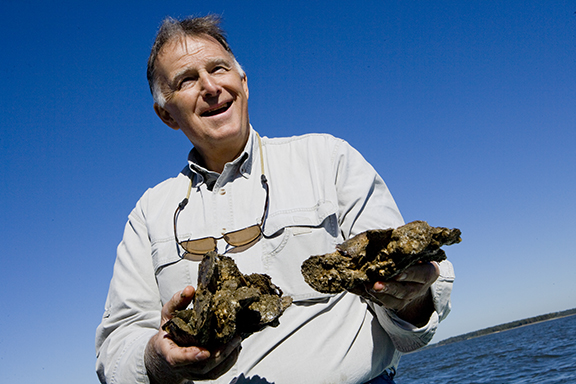
Don Webster
The University Senate’s final meeting May 7 will also be the last for Chairman Vincent Novara.
Donald Webster will take his place in the fall, becoming the first extension faculty member to serve as senate chairman.
Webster, 67, has worked for the university since 1974. After working with Novara on the Senate Executive Committee for the past year, Webster said he is impressed by the current chairman’s work and wants to continue some of his efforts.
The new chairman and shared governance advocate said he hopes to foster civil debate and allow all sides to have their voices heard while also increasing the diversity of the senate body and encouraging more people on the campus to get involved with it.
“It works when you’ve got involvement of everybody on campus,” Webster said. “I’m gonna try very hard to continue to bring as many people into senate activities, make sure they know what’s going on and try to get as many people as possible to apply for committees. I think that’s very healthy.”
One of the major challenges Webster plans to tackle as senate chairman is revising the Guidelines for Appointment, Promotions, and Tenure, which outlines the process by which faculty obtain tenure. The APT Guidelines Task Force presented recommendations to the senate April 17, but the senate pushed the vote to the fall to give departments more time to consider the suggestions.
Webster joined the senate’s Faculty Affairs Committee in 2011 and helped revise the university’s policy on faculty merit pay distribution. In 2012, he became a senator representing the agriculture and natural resources college before becoming chair-elect last year.
He works at the university’s Wye Research and Education Center in Queenstown, focusing on commercial aquaculture in the Chesapeake Bay.
Webster’s career goal has been to encourage commercial fishermen to take up aquaculture — raising sea organisms to increase biodiversity and enhance water quality — to improve Chesapeake Bay ecosystems.
“What’s most gratifying is seeing how that industry has grown,” Webster said. “Really seeing what you’ve done with your colleagues turn into something on the ground.”
Webster also gets experience with policymaking in state government as chairman of the state Aquaculture Coordinating Council, which makes recommendations to Gov. Martin O’Malley and the General Assembly.
His work as council chairman influenced O’Malley’s decision to prioritize aquaculture and propose the Oyster Restoration and Aquaculture Development Plan, which aims to rebuild Maryland’s decimated native oyster population.
Novara said his successor’s experience prepared him for the responsibilities of chairman.
“He always knows the right questions to ask when something is presented to us, and he comes up with them very quickly,” Novara said. “A lot of that has to do with his experience lobbying on behalf of his program in Annapolis.”
Reginal Harrell, an extension faculty member and environmental science and technology professor, has worked with Webster for 30 years and said Webster is the perfect choice for chairman.
“Don has a unique quality of people I’ve worked with to see through the fluff and get to the issue in a heartbeat,” Harrell said. “He would be a phenomenal senate chair.”
While Webster “listens very well before he jumps in” and gives “very thoughtful advice,” Harrell said he is excited to have a senate chairman who recognizes the importance of extension faculty, with offices in Baltimore and all 23 of this state’s counties.
“It’s refreshing to me to have someone in the University Senate level that Don is, who has an appreciation that the campus is much bigger than the footprint in College Park,” Harrell said. “You have a lot of faculty and staff who work for the university and who are not involved on campus.”



